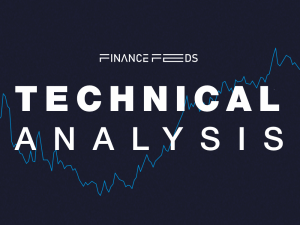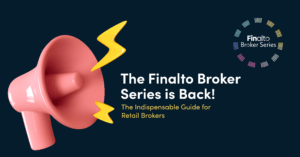Deutsche Bank and its love-hate relationship with FX industry prime brokerages
We take a good look at why Tier 1 liquidity provider Deutsche Bank must prioritize the FX and OTC derivatives industry, and not restrict credit in favor of pursuing follies in its domestic market

Never, in the entire annuls of history within the complete structure of the electronic trading industry would it be remotely conceivable that a Tier 1 bank that is at the very top of the chain with regard to FX order flow, would ever display commercial difficulties.
Everything is in favor of the Tier 1 bank, surely.
From the banks’ ability to engage in the controversial practice of ‘last look’ execution without any clamor from official organizations, ECNs or prime brokerages that show disdain for it, to the same banks’ abilities to restrict credit to OTC derivatives market participants claiming, in the case of the world’s largest interbank FX dealer Citigroup, that even well capitalized OTC derivatives and electronic trading entities have a potential default ratio of 56% with regard to the extension of counterparty credit.
Yet the same banks continue to provide 100% mortgages to those who cannot prove their income, or have little collateral, whereas in many cases, FX brokerages are capitalized to the tune of hundreds of million and in the case of publicly listed firms in London, have market capitalization figures of between £6 million and £8 million, with their business being far more lucrative to the Tier 1 banks than that of traditional retail banking which requires a national network of branches (expensive and inefficient!) and a stream of retail customers who want small loans or to deposit small sums (expensive and inefficient!)
Deutsche Bank most certainly is this year’s bete noire of the interbank sector.
On one hand, the firm benefits on a gargantuan scale from having a prominent facility in Canary Wharf, London, from which it provides its liquidity to prime of prime brokerages that power the entire world’s financial markets. Not Frankfurt, but London.
Yet the firm is in poor financial condition, and instead of embracing the very lifeblood of its business – providing liquidity to OTC FX prime brokerages – the firm continues to dig itself a hole the size of the Hoover Dam.
Deutsche Bank’s interbank FX market share dwindled in 2015 from 14.5% of the entire global market in 2014 to just 7.9%. Moody’s downgraded the firm to two points above junk status in the early part of this year which is an atrocious testimony to what was among the top five Tier 1 interbank FX dealers globally in 2014 – a year of very low volatility indeed.
Instead of majoring on its London prominence, whereby from just one facility, Deutsche Bank can profit from its high standing within the interbank FX market, the firm has made massive losses recently.
Back in October 2015, FinanceFeeds first reported way ahead of the mainstream media that the interbank FX giant had estimated a third quarter loss of £4.4 billion, with sentiment from within the FX industry, especially surrounding the circumstance in which the loss of approximately 5.8 billion Euro was contrary to the forecast of 1 billion Euro profit.
Deutsche Bank is the second largest interbank FX dealer in the world with14.54% of global market share in 2015.
In the Spring of 2016, just four months after the firm’s massive plunge in which its FX dealing market share was almost cut in half. the true gravity of this situation came home to roost as Germany’s finance minister Wolfgang Schaeuble has publicly declared his perspective on Deutsche Bank’s precarious position.
“No, I have no concerns about Deutsche Bank,” Mr. Schaeuble told Bloomberg Television in Paris after a meeting of French and German finance chiefs today. Yes, and the Emperor is wearing clothes.
Whilst making this statement which attempts to boost confidence, Mr. Schaeuble did not provide any figures or forecast with regard to how Deutsche Bank is likely to recover from its plummeting position, nor was any information regarding rising investor concern over the bank’s finances and collapsing share prices proffered.
Deutsche Bank’s CEO John Cryan has issed a memo to employees as a further attempt to boost confidence, stating that the bank is “rock solid” and has a “strong” capital and risk position, and iterated that the bank “took advantages of its capacity and commitment to pay coupons to investors.”
Such statements, made at such senior level resemble those made by certain now-defunct retail FX firms at the time of the Swiss National Bank’s removal of the 1.20 peg on January 15 last year. Some of the firms that declared strong capital positions in the aftermath of that particular black swan event indeed did not survive the losses that they were exposed to, despite votes of confidence by senior officials within said firms.
This summer, Deutsche Bank began to realize that, despite the credit restrictions that are in place within most prime brokerages, it had to bolster that side of the business.
In July this year, the bank began a drive toward encouraging hedge funds to place more capital at its prime brokerage division, as part of a campaign to reassure investors of its worthiness as a counterparty.
Prime brokerage capital, according to Deutsche Bank, was “supported by higher client financing revenues due to increased client balances”, citing tough market conditions as a reason for flat overall incomes.
Flat incomes? Corporate spin for astonishing losses to which the German government had to respond.
In the spring of this year, Deutsche Bank Co-CEO John Cryan stated publicly that institutional investors should trust the counterparty credit rating the lender has from Moody’s Investors Service (!!), rather than the cost of insuring Deutsche Bank’s debt, which grew dramatically during the early parts of this year.
The prime brokerage gained client balances even as hedge funds suffered their worst withdrawals since the financial crisis.
“When we focus clients on the A2 rating, I think they’re more than satisfied with us as a counterpart,” Cryan said on a call with analysts. “In our prime finance and the repo business, they like the service level, they like the products we offer, and we are keen to grow balances there.”
“We’ve made a lot of progress with most of our major institutional counterparts in communicating to them” on total loss-absorbing capital, Mr. Cryan also said, despite the firm having not provided a summary of quarter on quarter earnings for the first part of 2016.
This outmoded commercial attitude toward providing good quality Tier 1 liquidity to the top quality non-bank prime brokerages of this highly advanced industry must stop.
The sooner that banks such as Deutsche Bank, which will lick its wounds for a considerable amount of time if it continues to focus on its defunct home market rather than its standing as one of the top liquidity providers in the world’s financial capital of London, the sooner they will not only drag themselves out of the financial mire, but they will end their paranoia toward extending credit to the very OTC derivatives firms that are their most lucrative and least risky commercial customers.
Deutsche Bank must make a priority that London’s institutional sector is the place to do business, and the place which will haul it out of the financial mire, not its native Germany, for reasons that are quite apparent indeed.









